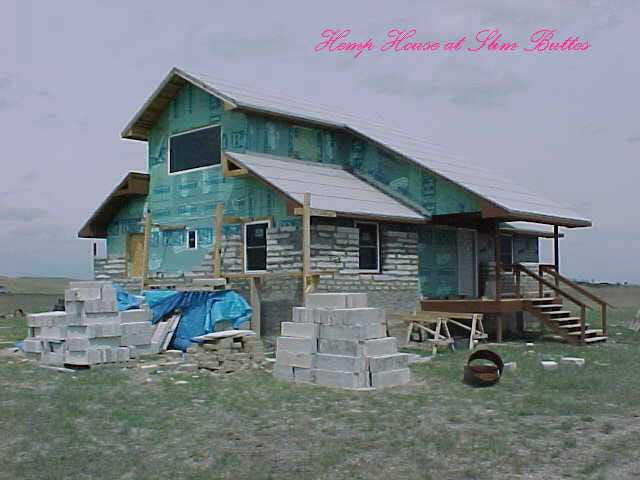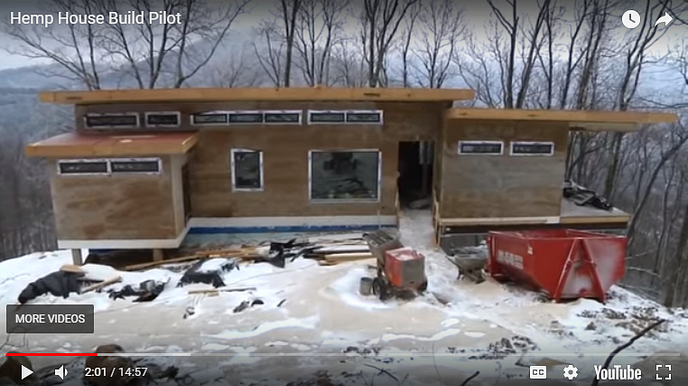Hemp: A Versatile Cash Crop
There are endless possibilities with US grown hemp. What many people don’t know is this crop has been grown in the US before — George Washington grew hemp in Mount Vernon, Henry Ford used hemp to produce ethanol, and hemp was one of the most important crops in Kentucky in the 1800s.
However, in 1937, as a result of the “Marihuana Tax Act”, it became illegal to grow hemp in the US. Nevertheless, exceptions were made at the start of World War II. The US Department of Agriculture produced a film called “Hemp For Victory” to encourage US farmers to grow hemp for the war effort as supply of imported hemp fiber from the Pacific Islands diminished.
Hemp mills were built throughout the Midwest and 4,000 acres per mill were contracted for the growing of hemp with the private corporation War Hemp Industries, Inc. Hemp became essential to the war, mainly for the production of rope, and the cultivation of hemp was even promoted as a patriotic act.
Below is the video produced as part of America’s Hemp for Victory campaign during World War II.
After the war ended, the US hemp industry faded away.
|
Cultivating hemp in North Dakota, 1919 |
|
Making Hemp Legal Again
Moreover, hemp fiber has many industrial applications — as an environmentally-friendly substitute for plastic, cotton, wood, steel, and plastics. Hemp grown outside the US is already being used in the automotive, furniture, paper, and textile industries. US farmers are eager to see hemp production become legal once again via the 2018 Farm Bill and hope to take advantage of this versatile cash crop.
Benefits of growing hemp:
- Hemp is very resilient! Hemp thrives in almost every climate, grows quickly (90-day crop), and requires little maintenance
- Because it produces its own resin, hemp is resistant to many pests and diseases so no harsh chemicals are required for healthy growth
- Hemp consumes very little water per kilo of fiber (much less than cotton)
- An enormous amount of pesticides is needed for the production of cotton
- Hemp stores CO2 during growth (one hectare of industrial hemp can absorb 22 tonnes of CO2)
- Hemp improves the soil by replenishing nutrients
- Biodiesel and ethanol can both be made from hemp
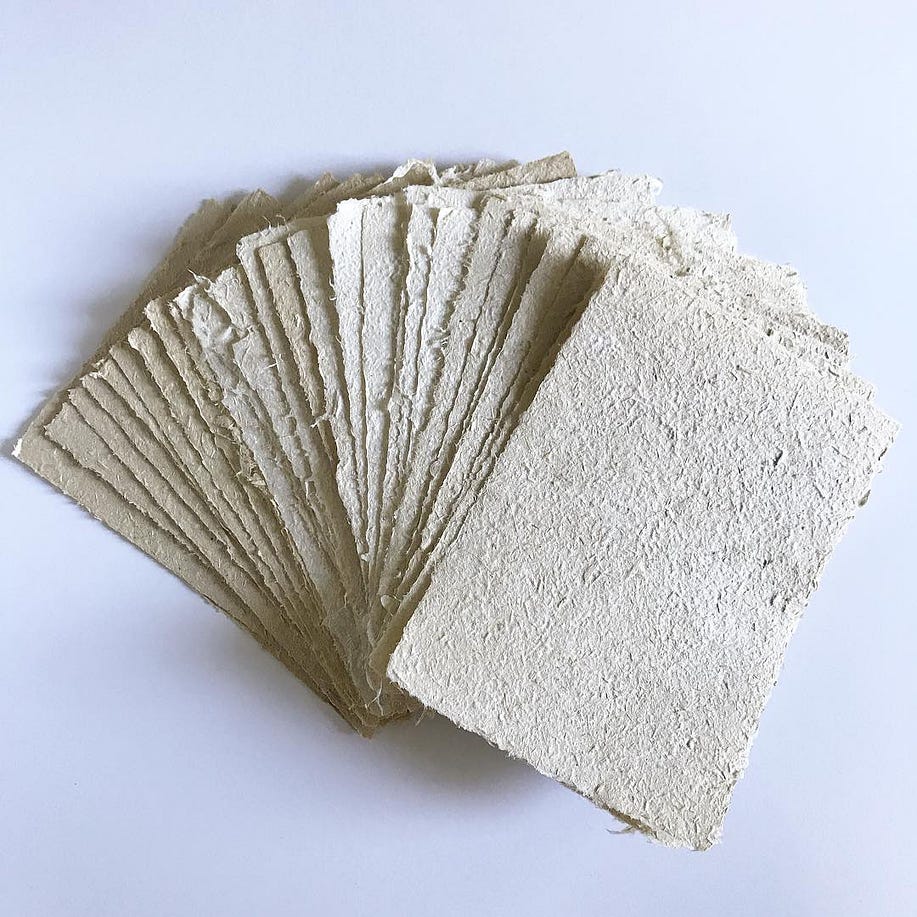
Below you will find information and ideas on how you can incorporate hemp into your life, routines, and future projects.
Hemp fiber is the building material of the future
- Cars made from hemp are lighter and safer than those made of fiberglass; hemp is ten times stronger than steel and does not rust!
- Hemp paper lasts many times longer than paper from trees
- Bioplastic from hemp fiber is much stronger than plastic made from oil, and it’s biodegradable
- The production of plastics with oil produces a huge CO2 emission
Building homes with hemp
We may soon see hemp become a more popular building material as hemp production makes a comeback in the US. There are many benefits on building homes with hemp:
- Highly breathable (a porous building material)
- Temperature and moisture regulating
- Provides strong insulation
- Prevents mold
- Fire resistant
- Non-toxic building material
- Lightweight
|
Hemp house in the US at Pine Ridge Reservation, 2000 |
Building a hemp house in North Carolina, 2011 |
Hemp as a Superfood
Hemp seed oil is also rich in the plant-based omega-3 fatty and omega-6 fatty acids. Research shows that getting enough omega-3 fatty acids each day can help maintain healthy cholesterol and blood pressure levels. Hemp seed oil has been called “nature’s most perfectly balanced oil.”
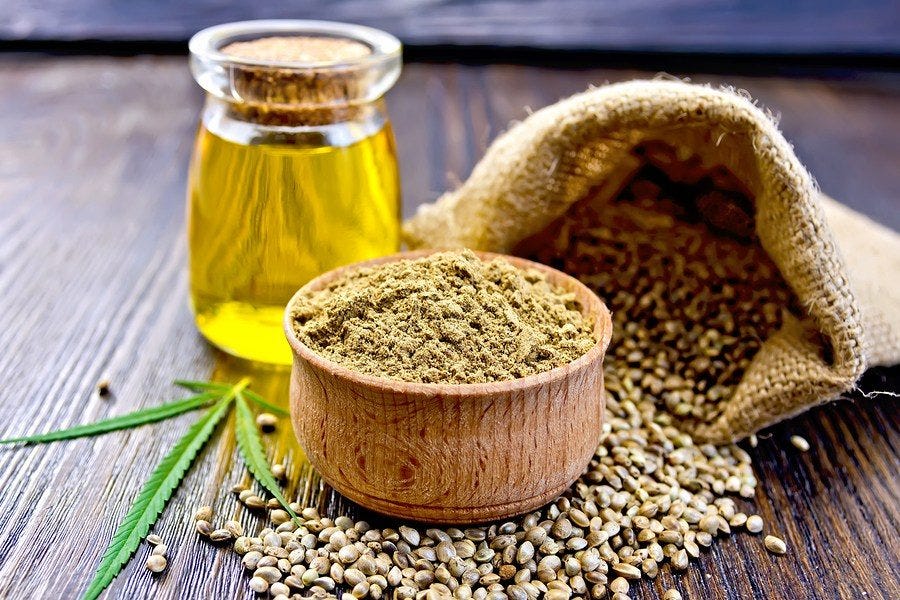
Hemp as a Natural Supplement
CBD is a therapeutic compound found in the cannabis plant. Studies have shown that CBD has potential anti-inflammatory, anxiolytic, pain-reducing, anticonvulsant, and antibacterial properties. CBD is CBD, whether it’s extracted from industrial cannabis (hemp) or recreational or medical cannabis; it is the same compound.
CBD is being widely used as an antioxidant supplement, and incorporating CBD into our daily routines can help promote proper functioning of the endocannabinoid system (ECS), the sole purpose of which is to maintain homeostasis in our bodies. Of all our physiological systems, the ECS is the most important to establishing and maintaining our health.
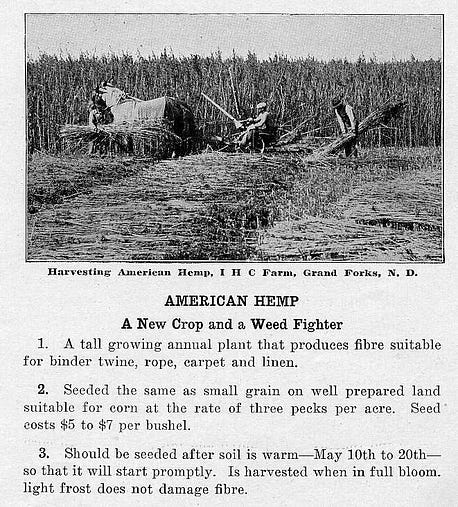
 Hemp seed stacked in a Kentucky warehouse, 1942
Hemp seed stacked in a Kentucky warehouse, 1942